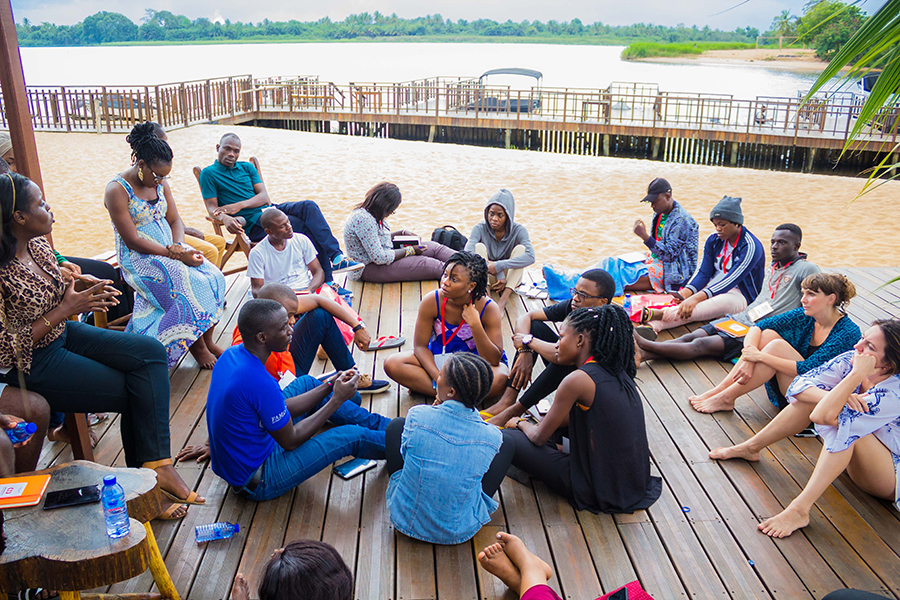The Possibilists, a new study – the first of its kind – conducted by a global alliance of youth communities, reveals the pressing needs of young changemakers worldwide who dedicate their lives to social and environmental causes.
“Young changemakers are resilient, innovative and intrinsically motivated to change the world and improve the lives of others. But, in doing so, they’re sacrificing their wealth and wellbeing. As a society, we need to step up our game and better support young people who dedicate their lives to social and environmental causes,” says Nick McGirl, Co-Founder & Managing Director at ChangemakerXchange, the umbrella organization that hosts The Possibilists.
The study surveyed a diverse group of about 800 young social innovators aged 16-35 from 137 countries who all lead impact-focused initiatives, social businesses, non-profits and campaigns related to every single one of the 17 UN Sustainable Development Goals, from lobbying for the rights of migrant construction workers to supporting sexual violence survivors.
Key findings from the report include:
- Young changemakers are sacrificing their financial security and wellbeing to change the world.
- Financial issues: 66% cannot compensate themselves beyond a token amount for their work on their initiatives (41% not at all), and only 9% can live off their ventures.
- Wellbeing issues: 59% have experienced some degree of burnout since they started work on their initiative.
- 64% feel their work is negatively affected by systemic inequalities.
- The COVID-19 crisis has increased both their capacity and desire to make a change in the world.
- Only 3% have been forced to close down activities due to COVID; the majority are innovating, adapting and responding to the challenge.
“If you want to spark change in the world and demonstrate what’s possible, look to the youth for inspiration. The valuable impact that these social entrepreneurs are delivering can be attributed to their fresh perspective; the world has a lot to learn from their ingenuity and perseverance. SAP is proud to support this research, connecting people and information to accelerate solutions for the world’s most complex challenges,” says Alexandra van der Ploeg, Head of Corporate Social Responsibility at SAP.
“Young social innovators can play a key role in helping our societies recover from the pandemic and in building digital, inclusive and sustainable economies that work for everyone. Google.org is proud to support many young changemakers through our programmes and grants. We’re also delighted to support this important research which shows that so much more can be done to help them overcome significant personal and financial barriers, and provide access to capital, skills and support networks to enable them to tackle some of the world’s biggest systemic challenges,” says Rowan Barnett, Head of Google.org for Europe, Middle East and Africa.
The participants in the study come from the different organizations supporting young changemakers; Ashoka, ChangemakerXChange, Global Changemakers, Kofi Annan Foundation, MasterPeace, Obama Foundation, One Young World, Peace First, Social Impact Award, Social Shifters, SOS Children’s Villages, The Diana Award, Unleash, We Are Family Foundation, Young Sustainable Impact, and Yunus & Youth. The Possibilists is supported by the SAP Foundation and Google.org.
The report outlines eight recommendations for organizations to better support changemakers on a personal level and in their work with their initiatives and organizations. Support programs for youth social entrepreneurship need to:
- Focus on young social innovators as people and on their personal needs and not just on their initiatives;
- Ensure the personal financial stability of young social innovators;
- Offer wellbeing support, and avoid placing additional or unnecessary pressure and demands on young social innovators;
- Strengthen the local–international connections of young social innovators and how their work helps to translate global matters into concrete local action;
- Focus on working to reduce systemic inequalities;
- Give young social innovators a seat at the table by facilitating access to decision-makers and grant young social innovators access to places of power and influence.

